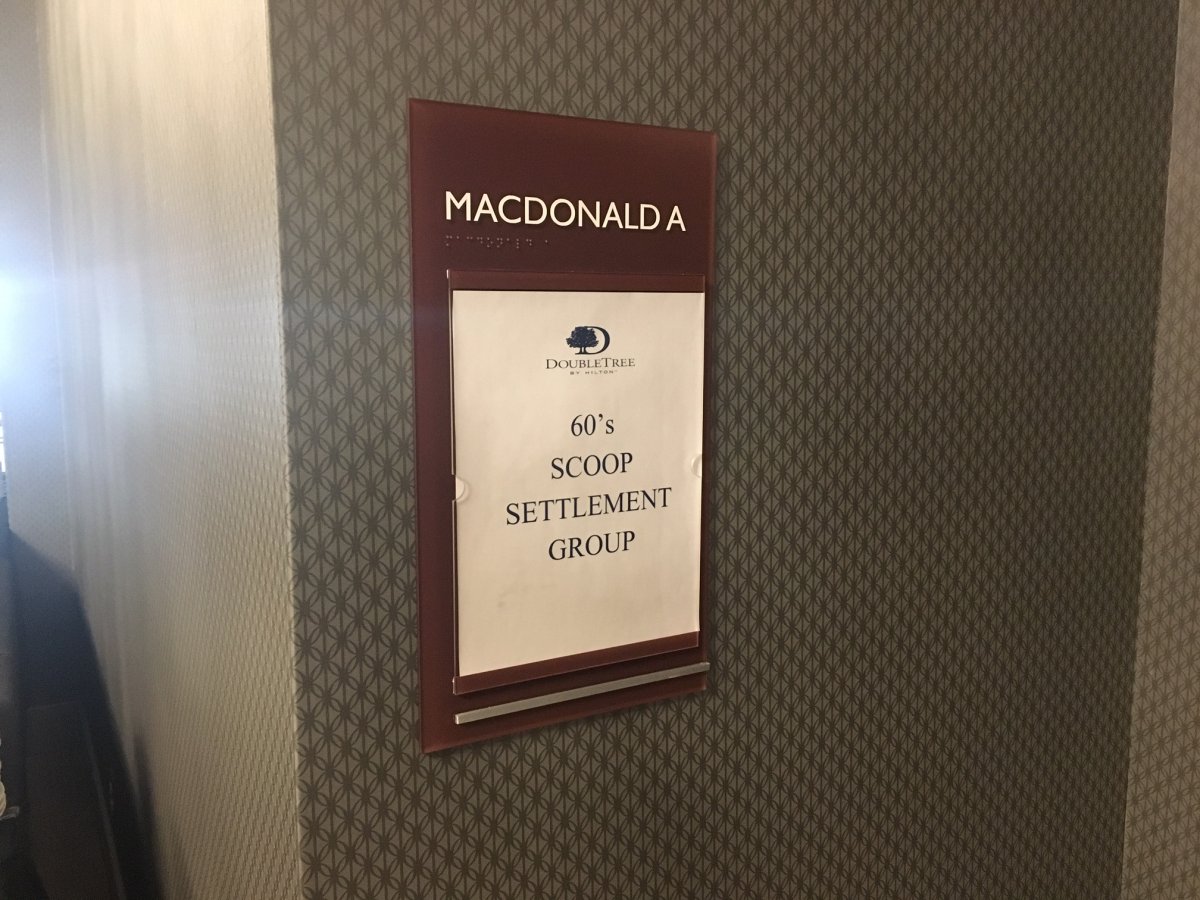An information session about a settlement agreement for survivors of the ’60s Scoop was held in Dartmouth on Thursday.

The ’60s Scoop refers to a period between 1960 and 1991, when about 20,000 Indigenous and Inuit children were seized from their birth families and relocated to non-Indigenous homes.
The practice stripped children of their language, culture and family ties.
READ MORE: Attempt to appeal settlement in ’60s Scoop class action tossed over ‘extreme’ lack of evidence
In a settlement in 2017, the federal government agreed to pay survivors $750 million, funds that will be divided by eligible class members reaching a max of $50,000 per person.
Collectiva is the court-approved claim administrator for the ’60s Scoop settlement and will be helping individuals throughout the application process, free of charge.
Applicants do not need to hire or pay a lawyer.
WATCH: Saskatchewan apologizes for role in ’60s Scoop

Anything that may be left over will go to the Sixties Scoop Healing Foundation, which has already been promised $50 million.
The foundation will provide resources and counseling for people affected by the ’60s Scoop. A representative from Collectiva says they are doing their best to provide all the information required and will help research any information they may not have access to.
“We have to help them out to file a claim: explain how you do that, what documents you need to submit, who is eligible,” said Melanie Vincent, the Collectiva organizer for the event. “You know just the basic questions.”
Some members of the community, meanwhile, say that this is one step, but there are still many more to take.
Rose Michael attended the session and says she feels this is hush money.
“I’ve adopted seven children and I see what they’ve been through in the system also, and in my heart what happened when I was a little girl is still happening today as an adult to other children and it’s still devastating,” she said.
All claims must be submitted by Aug. 30, 2019 and the payouts are expected to begin by the spring of 2020.
- Alberta to overhaul municipal rules to include sweeping new powers, municipal political parties
- Canada, U.S., U.K. lay additional sanctions on Iran over attack on Israel
- Trudeau says ‘good luck’ to Saskatchewan premier in carbon price spat
- No more ‘bonjour-hi’? Montreal mayor calls for French only greetings




Comments